How to sleep better – 27 expert-approved ways to get a good night’s rest
Sleep is a key part of living a healthy, happy life. If you're struggling to catch some Zzzs, try these expert tips
Katie Sims
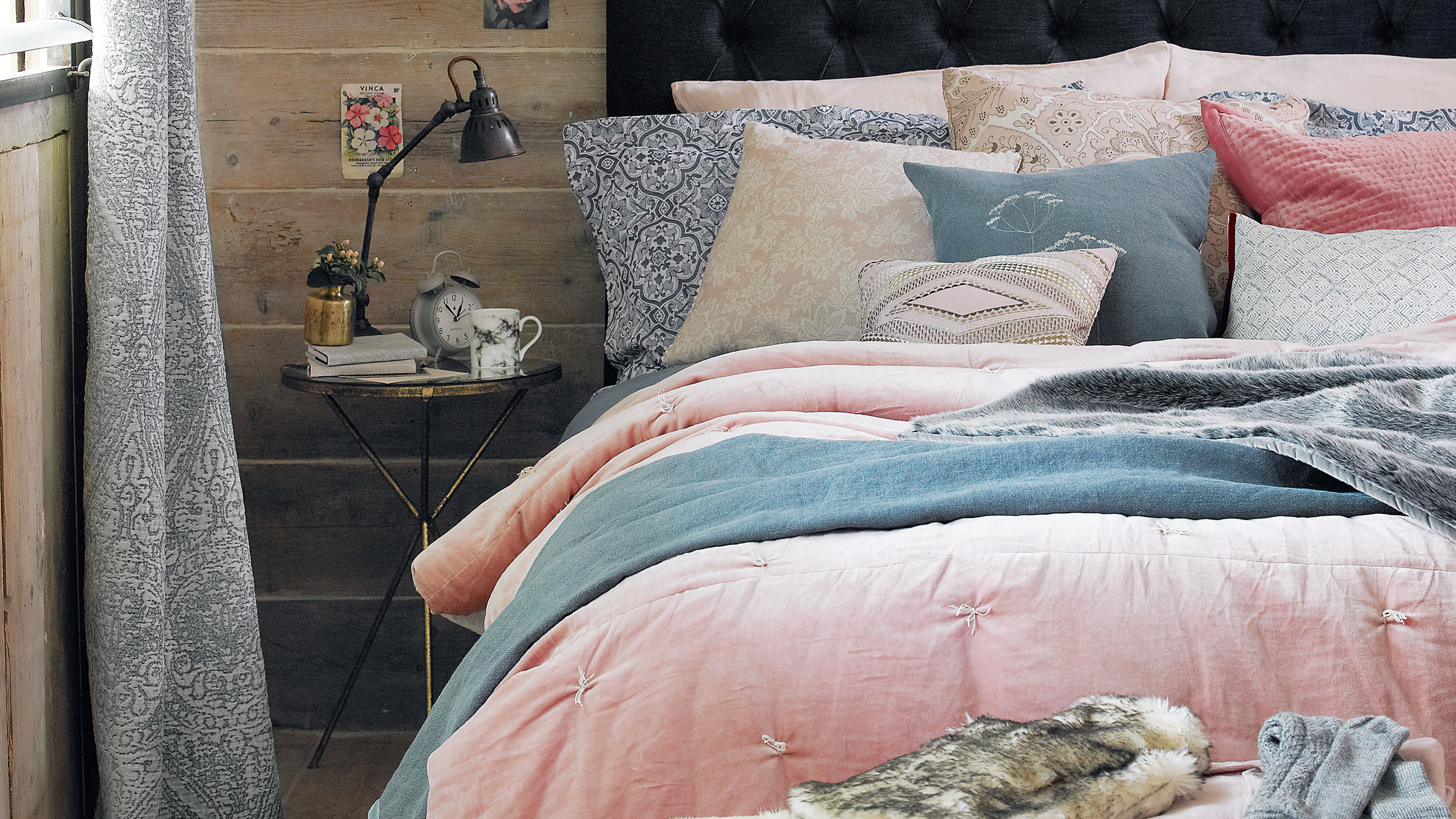
We all know how important sleep is. It only takes one night of bad sleep to really feel the effects of it the next day, so if you've been suffering with poor quality sleep for weeks on end, it's time to do something about it and learn how to sleep better.
It's so important for our bedroom, and particularly the bed, to be a space where we can switch off and relax as we fall into a deep, restful slumber. There are lots of things you can do to achieve this, from finding the best mattress to picking the right bedroom colour scheme, to finding ways to destress before you get into bed.
We've asked sleep experts from the likes of Emma, Simba, and Silentnight, plus Clinical Psychologist and Co-founder of The Good Sleep Clinic Dr Maja Schaedel, to share their knowledge so that you can learn how to sleep better. There's bound to be something from our extensive list of tips that will help you.
How to sleep better
It's no secret that good sleep is one of the pillars of a healthy, happy life. You might think you're one of those people that can 'get by' with just enough sleep, but it's a fact that you'll fare better if you're getting between 7 and 9 hours of good quality sleep a night.
'Sleep is essential for our physical and mental health,' says Dr Maja Schaedel, The Good Sleep Clinic. 'In order to do all of the activities we want to do during the day, we need sleep in order to regenerate cells, rebuild proteins and restore our emotional reserves.'
'A lack of sleep can affect your overall health, making you prone to serious medical conditions, such as obesity, heart disease, diabetes and high blood pressure,' expands Hope Bastine, Psychologist and Resident Expert at sleep tech firm Simba. 'So, if you want to wipe out winter fatigue, boost your mood and supercharge your health, making some simple adjustments to your routine is a great place to start.'
So now we've established the importance of sleep, let's get into all the ways you can learn how to sleep better, according to the experts.
Sign up to our newsletter for style inspiration, real homes, project and garden advice and shopping know-how

Dr Maja Schaedel is a Clinical Psychologist and has worked with sleep difficulties and other mental health problems in the NHS for nearly 20 years. She is Co-founder of The Good Sleep Clinic and also works at Guys & St Thomas' NHS Foundation Trust in London. She works with children, adolescents and adults with sleep problems and she offers therapies such as Cognitive Behavioural Therapy for Insomnia (CBT-I), Eye Movement Desensitisation Reprocessing (EMDR) and Acceptance & Commitment Therapy (ACT).
1. Keep the bedroom (and yourself) cool
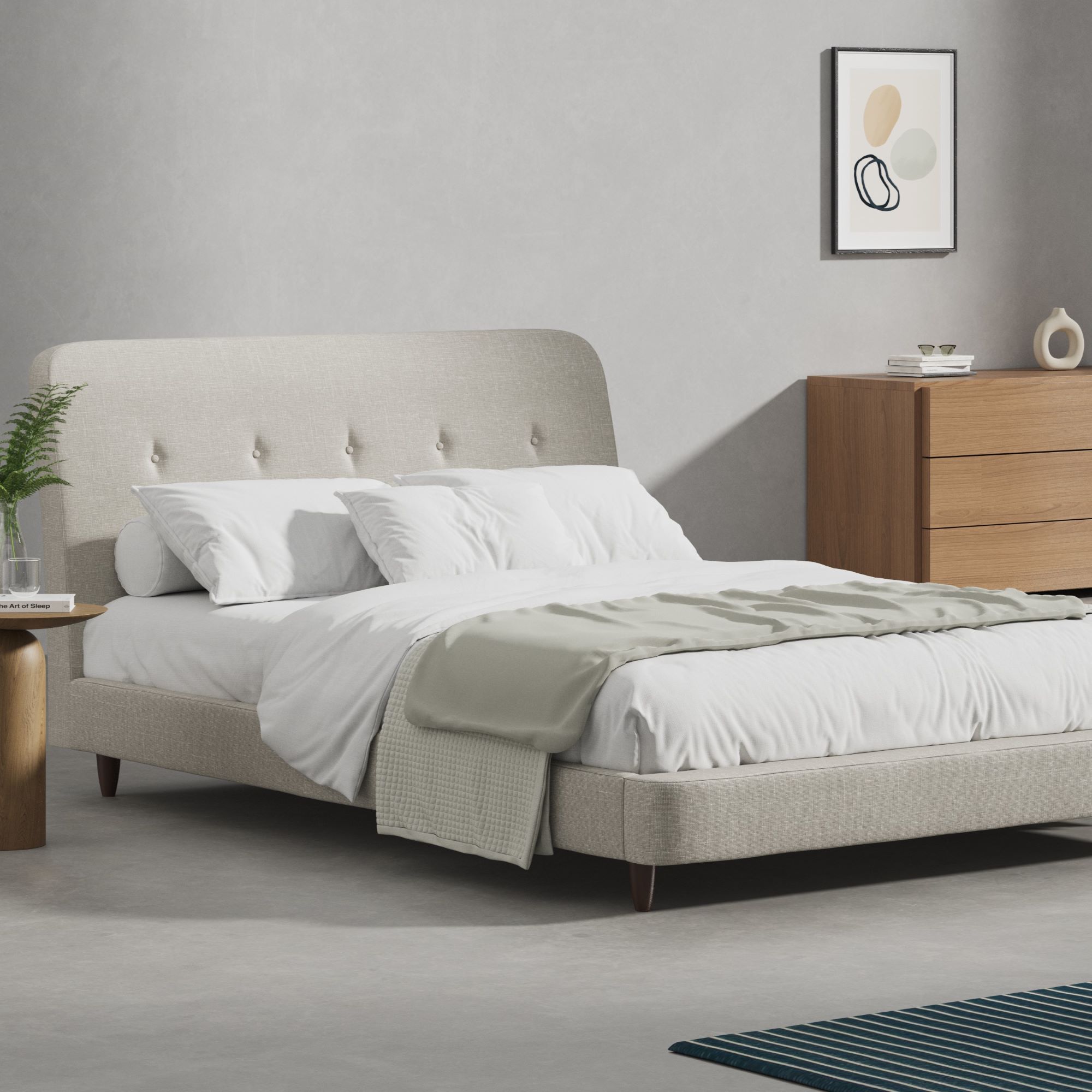
'Overheating is one of the biggest barriers to restorative and quality sleep', says Hope from Simba. 'A previous government study concluded that sleep problems are growing because energy-efficient homes are too warm at night.'
A cool temperature in the bedroom is key to learning how to sleep better, ideally between 15.5-19°C. There are lots of ways to keep a bedroom cool, but try cooling yourself down before bed too. Dr Maja recommends having a hot shower to do this.
'The heating up of our body, followed by the fast cooling down as we get out of the shower, leads to a rapid cooling of our core body temperature,' she explains.
2. Read a book to help you drift off
Bedtime stories aren't just for children. Studies have shown that reading a book before bed can help our minds switch off and prepare us for sleep.
'When our mind is swirling with the facts and thoughts of the day, stories help us shift down a gear before bed,' says Hope. 'They enable us to bypass those frustrating feelings of over-thinking (‘analysis paralysis’) and the ‘sleep paradox’ (the more you try to sleep, the more elusive sleep becomes). This is because our visual cortex and occipital lobe are engaged in imagination, so the analytical pre-frontal cortex quietens down.'
If we commit to doing this consistently every night, even the act of reaching for the book itself will signify that our wind-down has begun and it's time to relax.
3. Find the perfect mattress
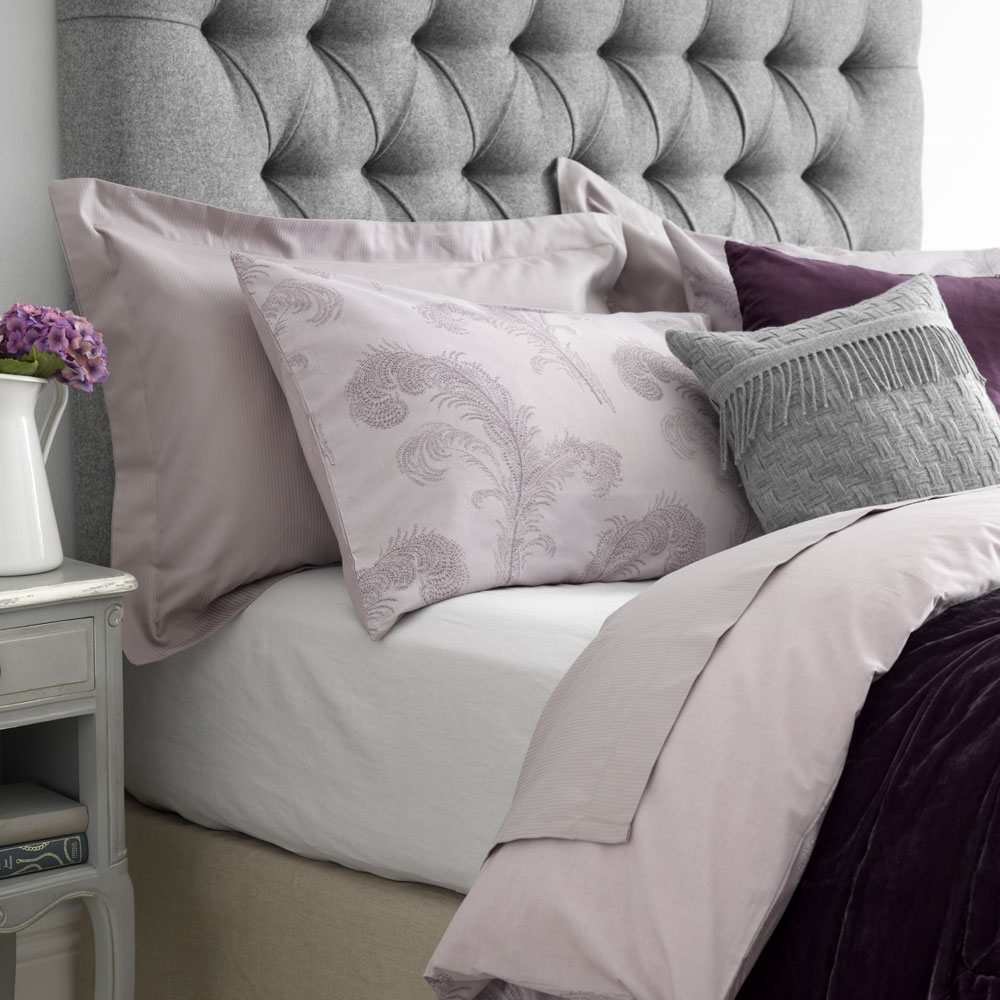
From a pocket-strung design to an open-spring mattress or even a memory-foam version, finding the best mattress can make the difference between a good sleep or a restless night. A mattress should be the right firmness and tension to support your back and neck, making it super comfortable to sleep on.
'Choosing the right mattress and bedding is essential for creating the right environment for a perfect night’s sleep, but it’s a little trickier than it sounds,' says Hannah Shore, Sleep Expert, Silentnight. 'We all have unique sleep needs, meaning we need a mattress to suit these.'
'Start by looking at the firmness of a mattress and find one that suits your unique body shape. Those with a larger stature will generally need a firm mattress, whereas those with a smaller stature may find they need softer support.'
It's important you take the time to find the right mattress for you, so read reviews and consider "test-driving" your mattress in-store before purchasing. That way you can avoid the common mistakes made when buying a mattress and end up with a mattress that supports you to have a comfortable night's sleep.
4. Add a mattress topper
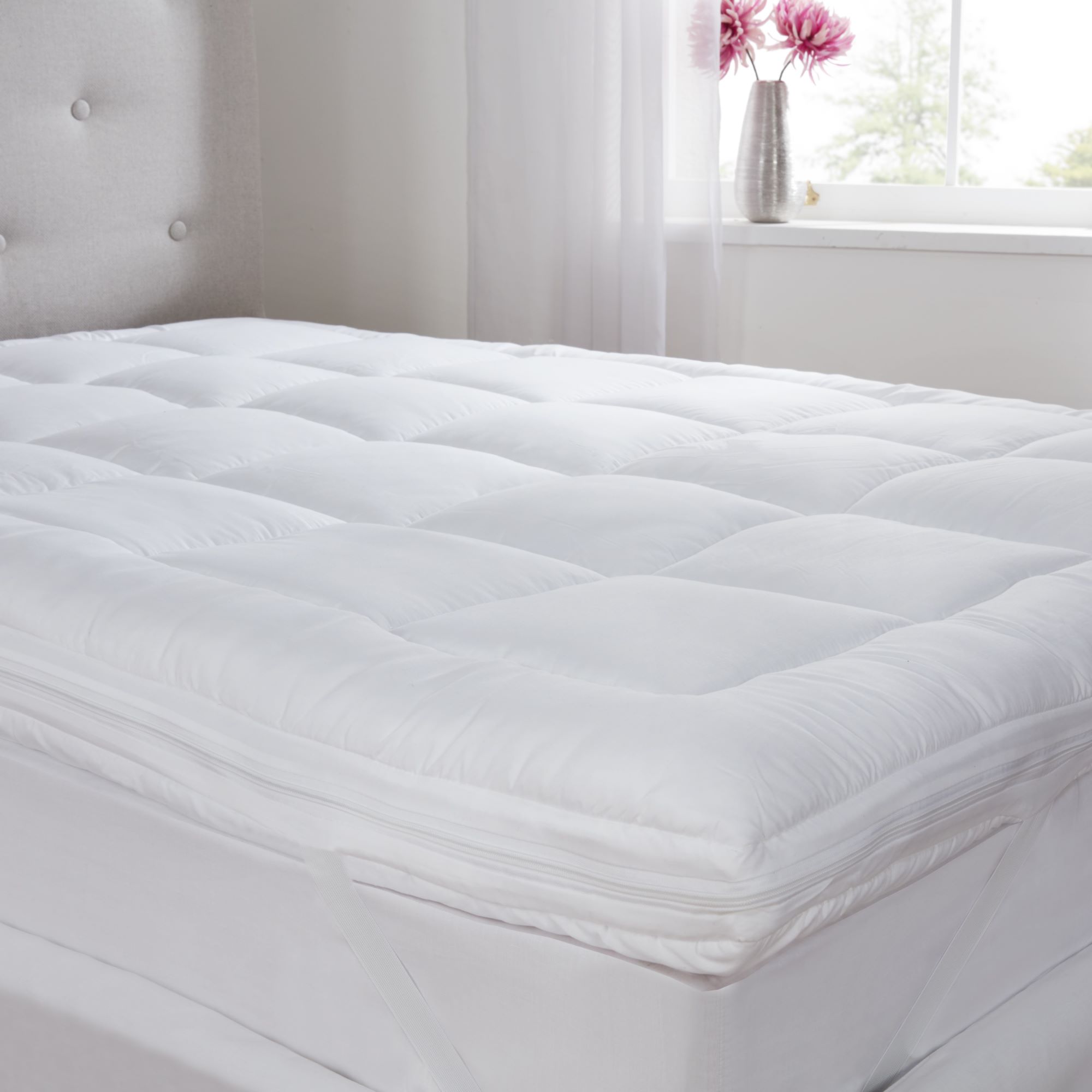
Even if you feel completely satisfied with your mattress, you could still benefit from one of the best mattress toppers. They're a great option if you're not ready to invest in a new mattress just yet either.
There are certain things to look for when buying a mattress topper, such as thickness, material, and size. Once you find the right one, it will support your body and elevate your sleep to a whole new level.
5. Plump for the perfect pillow
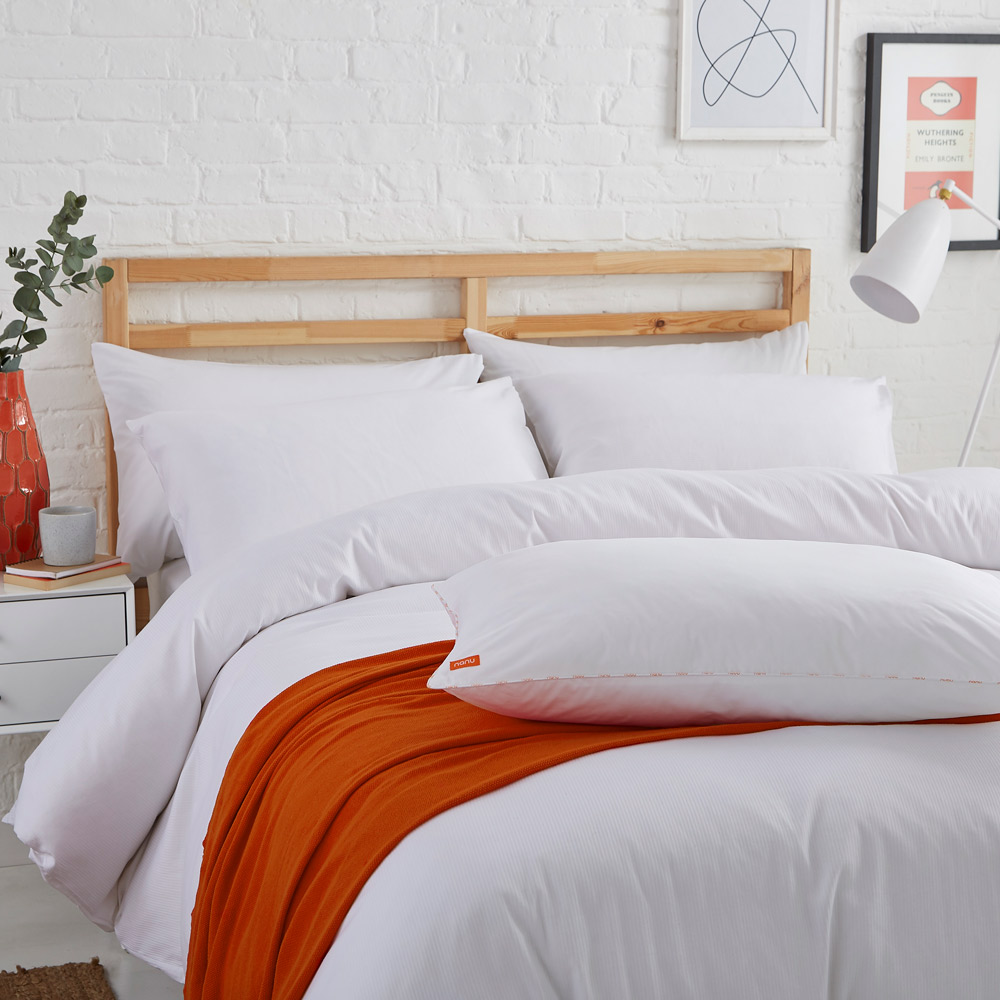
Almost on a par with the mattress for getting better sleep is the pillow. 'Sleeping with the wrong pillow can impact your sleep, in particular your spinal alignment from your neck to mid-spine,' says Hannah. 'This is where sleeping position becomes important. Front or back sleepers need a thinner pillow, whereas side sleepers will want to opt for a deeper, thicker pillow that fills the gap between shoulder and ear, providing the head with enough support.'
It isn't common knowledge that we should tailor our pillows to suit our favourite sleeping position, but it makes perfect sense to do so. So if you've been struggling with restless sleep, consider investing in one of the best pillows, making sure to research who they suit best first.
Take things one step further and customise a pillow to your unique needs. The pillow below will ensure a restful slumber for even the worst insomniacs, by asking for your weight, height, what side you sleep on, and how firm or soft you like your pillow. Welcome to the future of perfect sleep.
Buy now: Perfect Pillow, from £30, Nanu Sleep
6. Invest in blackout blinds
'Any light sneaking into the bedroom will make us feel more awake, so it’s worth investing in black out blinds to block out excess light and encourage good quality and quantity of sleep,' says Thomas Høegh Reisenhus, Sleep specialist and Sleep Counsellor, TEMPUR®.
Dr Ranj Singh, Brand Ambassador for Sleepeezee, agrees. 'Black-out blinds or curtains will limit light at night time,' he explains. 'This is crucial, as light interferes with melatonin production.'
'Melatonin is the hormone responsible for 'signalling' that it is time to sleep,' expands Dr Maja. 'It starts to be produced in the evening when the sun goes down and continues to rise in levels until about midnight when it then starts to peter out.'
7. Change the position of your bed
The position of your bed will also affect how much light you receive while you sleep. The Sleep Better Council recommends positioning your bed so that it is facing away from the door or window, to cut down the light reaching you. If you still that light is creeping into the room and making you stir, consider wearing an eye mask to block this out fully.
8. Choose the right bedroom colour scheme
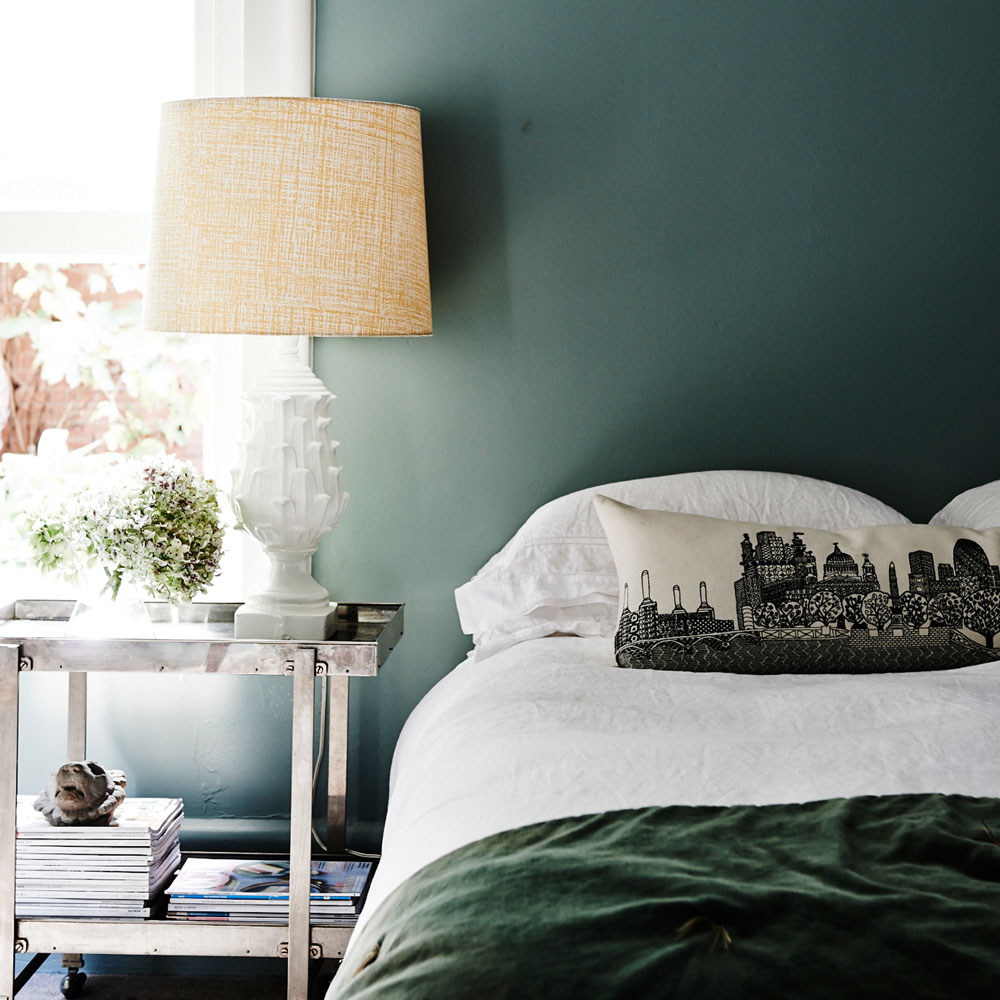
Whatever your bedroom colour scheme, make sure you choose a palette you find relaxing. It comes down to personal choice, but green bedroom ideas are often recommended for bringing in soft hues and natural associations, which help to create a calming atmosphere before bed.
There are certain colours experts recommend avoiding if you want a good night's sleep though. Neil Robinson, Chief Sleep Officer at Sealy UK advises keeping the bedroom clear of red. 'Being synonymous with emotions such as anger and passion, red is a very powerful colour and should ideally be avoided in our bedrooms. The colour can actually have a physical effect on the body, by raising our pulse. This makes it very difficult to relax and unwind, making falling asleep even more of a feat.'
9. Pick the ideal bedlinen
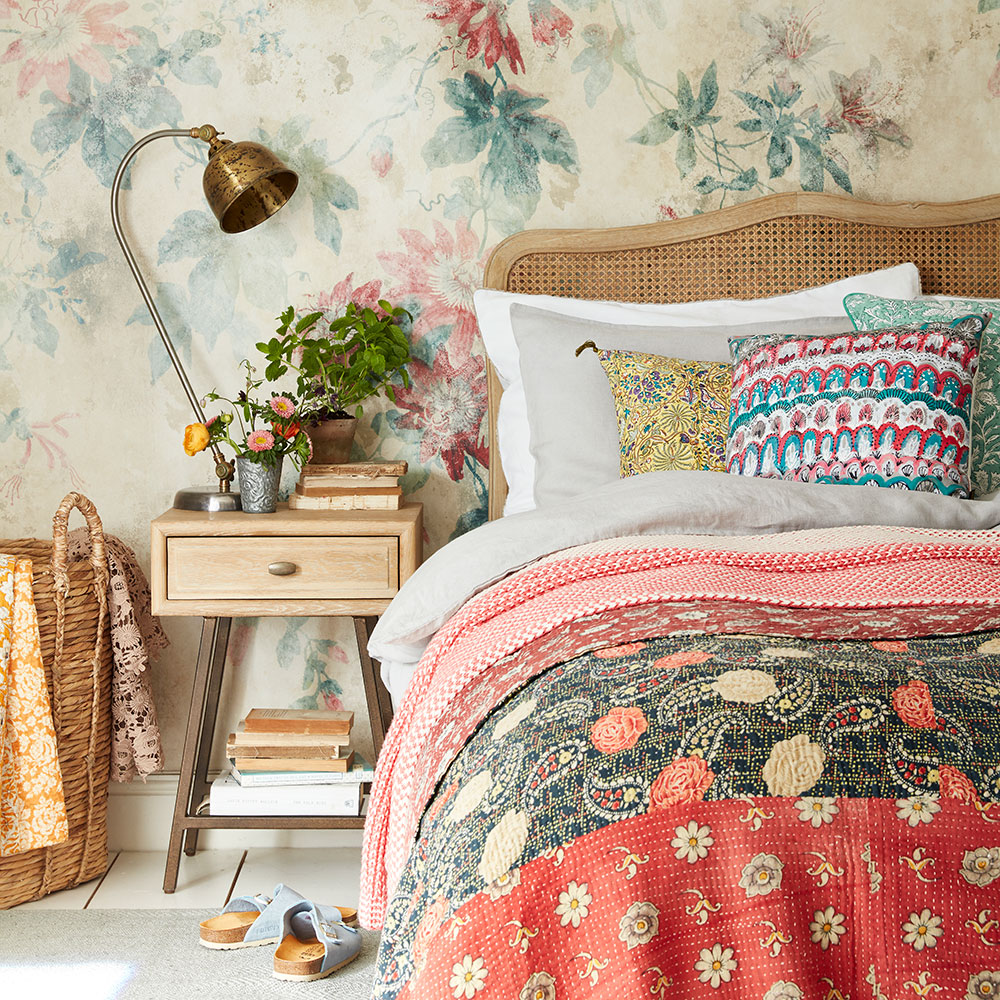
Again this is down the personal preference, but remember the thread count can make a difference. Typically, the higher the thread count, the finer and smoother the fabric and the comfier it will be to sleep in.
Think about the fabric and the weave – from plain to percale and satin to flannelette, there are a whole host of different fabric choices. And all this before you've even had fun picking colours and designs!
10. Put away your phone and tablets
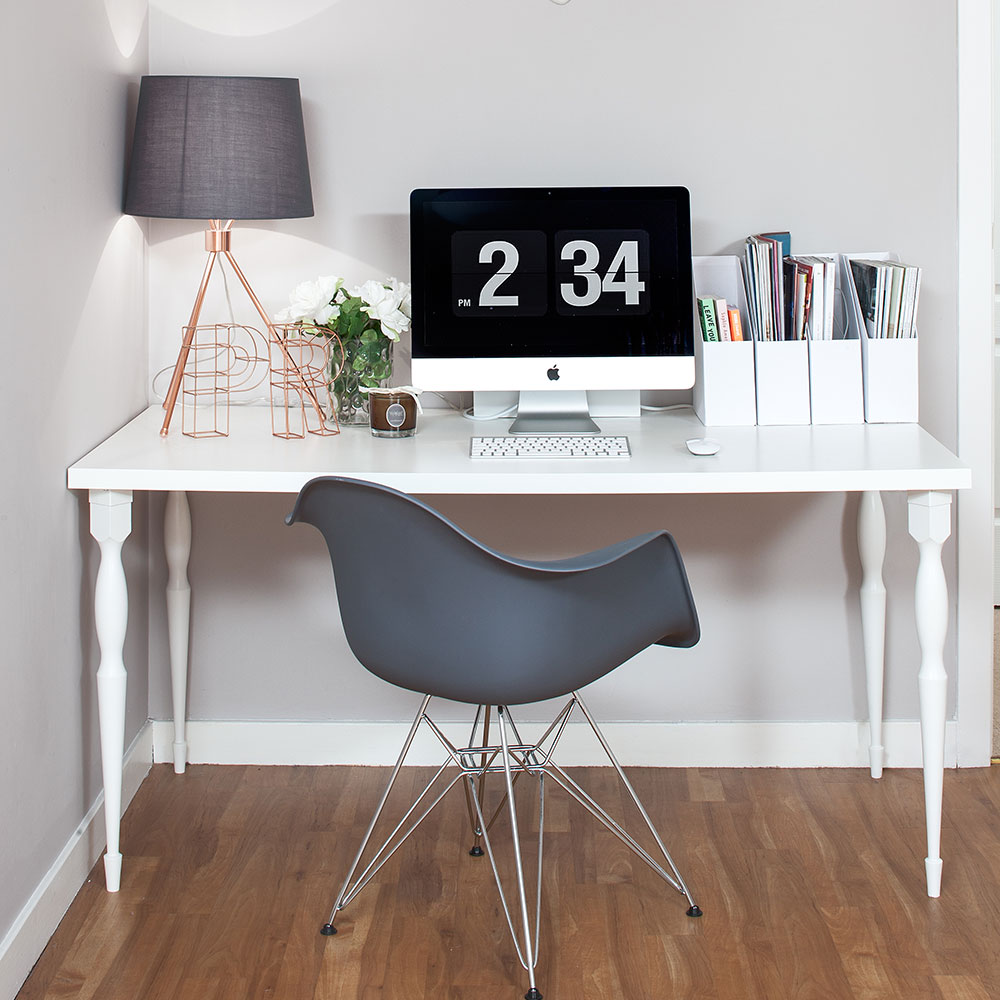
Melatonin, the hormone responsible for controlling our body clock and inducing sleep, is produced at night, and it's been proven that the 'blue light' from devices such as TVs and mobile screens could interrupt this process. Switching these off at least 30 minutes before bed as well as dimming bedroom lights can help to counteract this.
'Try to avoid having electronic devices in the bedroom, full stop,' advises Dr Ranj Singh. 'Or use a blue-light filtering app or mode.' Most phones and laptops have a handy 'night time' mode, so switch to these as soon as it starts to get dark.
11. Get more daylight
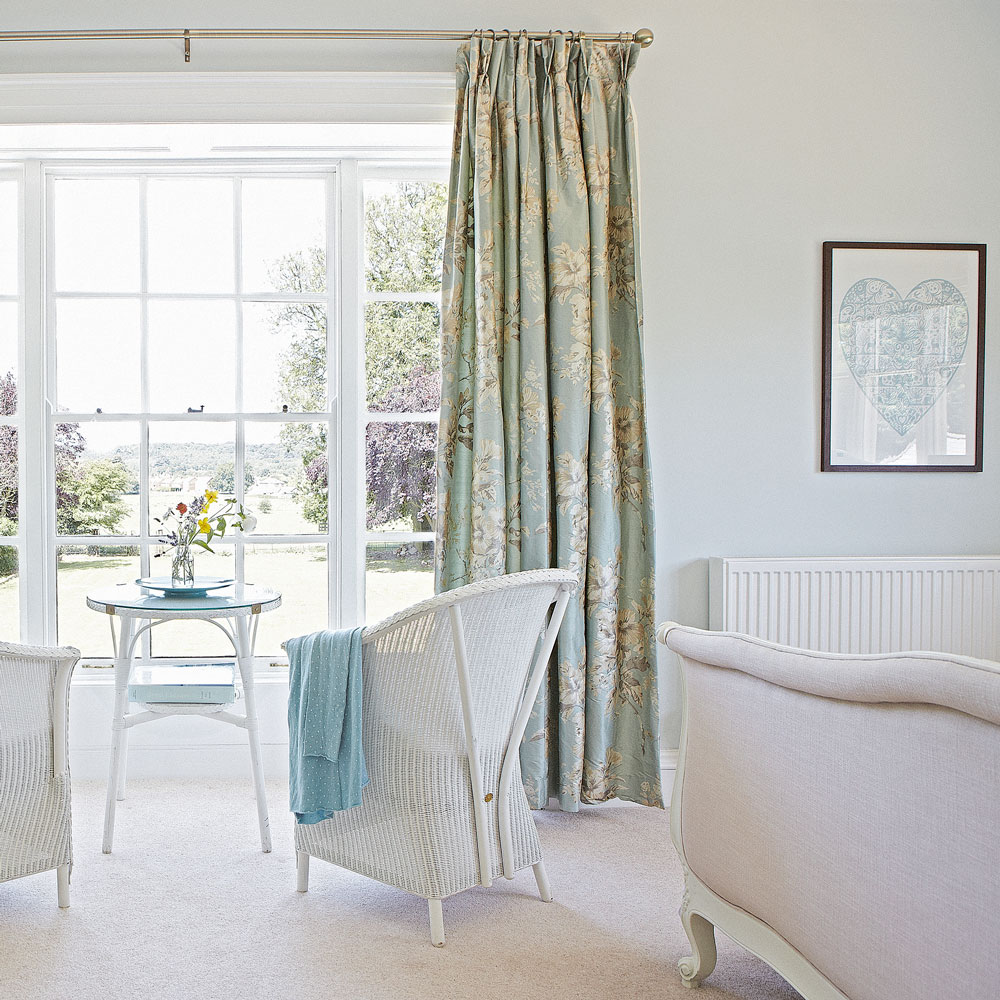
'Morning daylight has been linked to a good night’s sleep,' says Hope from Simba. 'In 2017, researchers found that people who were exposed to greater amounts of light during the morning hours, between 8AM and midday, fell asleep more quickly at night and had fewer sleep disturbances during the night compared to those exposed to low light in the morning.'
Light has been proven to be one of the most influential external factors affecting our sleep/wake cycles. Keeping our energy levels up during the day is essential for getting a good night's sleep, and the easiest way to do this is to experience as much light as possible, whether that's natural sunlight or artificial light (which we may rely on more during the winter months).
12. Contain the clutter
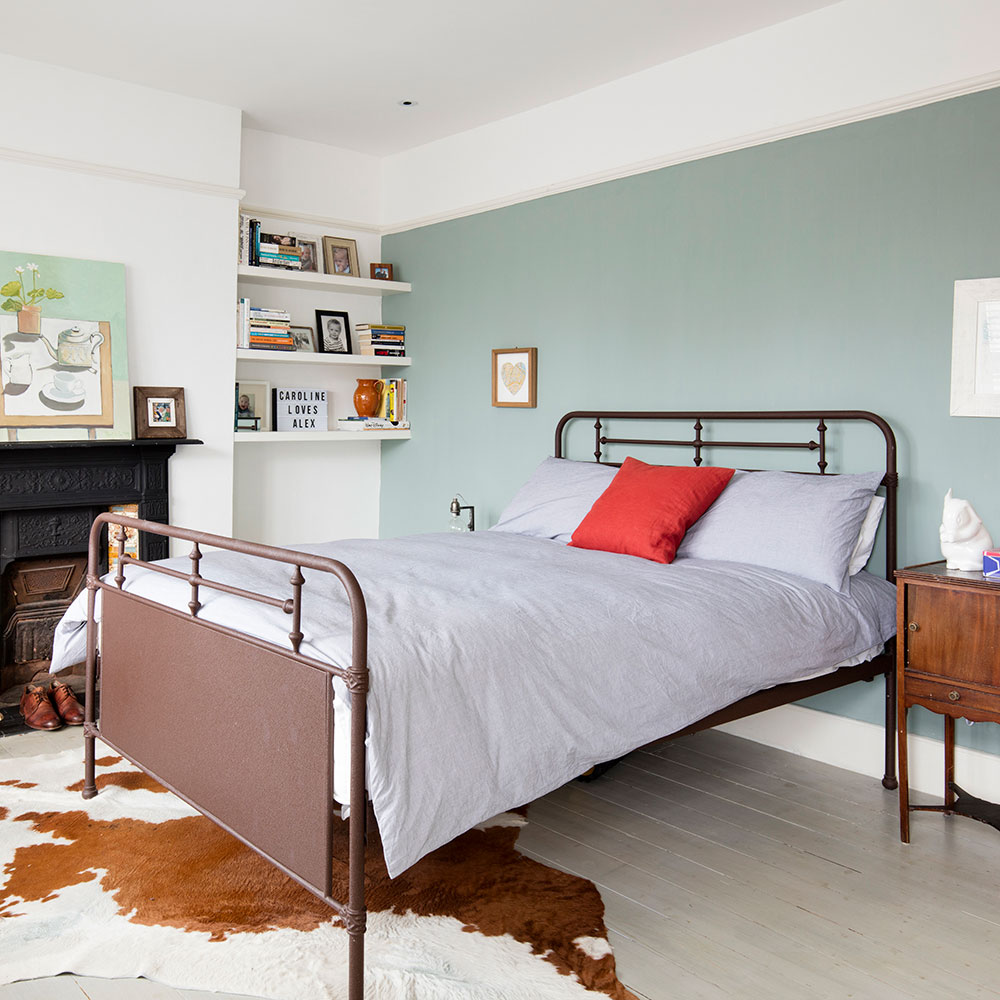
Being faced with a mounting pile of clothing and other items you've yet to organise – or struggled find a home for – could be contributing to exactly the kind of stress which keeps the mind whirring at night.
'Creating a more streamlined bedroom environment can start with simple steps,' says Neil from Sealy. 'This can range from anything from investing in some low-cost storage baskets to having a good old rummage in your wardrobe and donating any clothing you haven't used in a year or more to charity.'
13. Keep a sleep diary
Using a sleep diary for around a month could help to identify what factors could be impacting on your sleep. Make a daily note of the time you went to bed, how long it took to fall asleep, how many times you woke up, the time you woke up and got out of bed. The NHS has a printable sleep diary where you can keep track of all the above, and start to notice patterns in your sleep cycle.
The more awareness you have of the quality of your sleep, the more steps you can take to eliminate any issues.
14. Invest in a red LED lighting
As mentioned above, bright light can interfere with your body clock and keep you awake. Experts at the Sleep Organisation recommend choosing a darker, red light build in the bedroom as red wavelengths have been shown to be more conducive to sleep. If you don't want to change your overhead lighting, try swapping the bulbs in any bedside lamps that you regularly used for reading before bed.
15. Stick to a routine
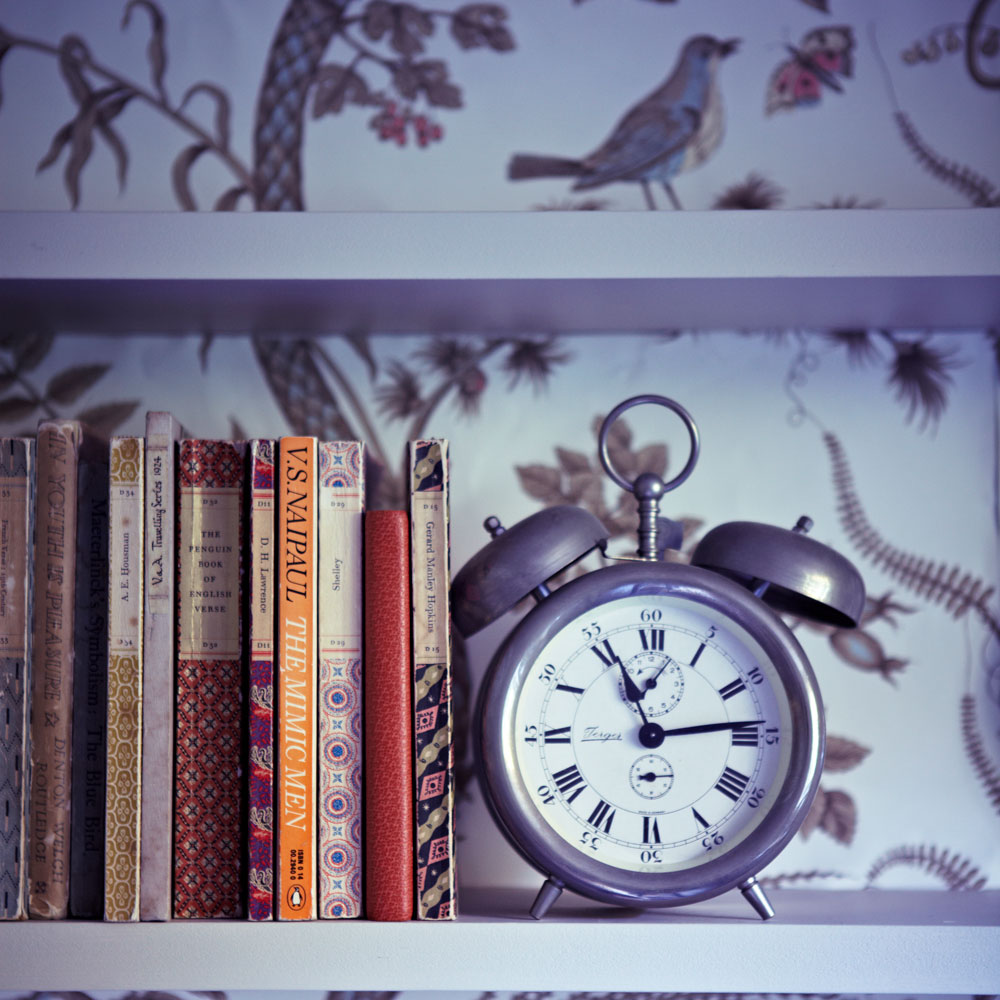
This one might be easier said than done, but try your best to stick to a similar bedtime routine. This means going to bed at the same time each evening and getting up at the same time each morning. Try to keep to a similar wind-down routine before you go to sleep so your body and mind knows when its time for shut eye.
'By sticking to a routine your body will “learn” when sleep is due and prepare itself accordingly by producing the hormones that aid your sleep,' explains Theresa from Emma.
16. Get up at the same time EVERY day
'Following the same sleep routines during both the weekdays and weekends will help to keep your sleep habits on an even keel,' adds Neil Robinson, from Sealy. 'Sleeping in on the weekend or going to bed much later than usual during the week can throw off our body’s circadian rhythm – the internal clock which controls our energy levels.'
17. Get the right amount of sleep
The National Sleep Foundation recommends adults get 7-9 hours of sleep a night. It's important you find out how many hours works best for you; ideally it will be between 7 and 9, but if it's a little less it's not the end of the world. Consistency is the real importance here.
Try keeping a sleep diary or tracking your sleep with a wearable device (ideally not your phone). If you have a good idea of how much sleep you need to feel good and what affects your sleep, you can make sure you establish good habits, or pinpoint issues.
18. Watch what and when you eat and drink

As a rule, eating less than two hours before bed means that food hasn’t had time to digest before we try and sleep. This can lead to discomfort and indigestion. Fatty or spicy foods can take longer to process and stimulants like caffeine or sugar can give us a boost of energy when we want to be winding down. Rice, oats and dairy products can encourage us to feel sleepy.
Dr Ranj also suggest you eat more carrots. 'Carrots contain carotenoids which make your eyes more tolerant of blue light,' he explains. 'You could also have a shot of Tart Montgomery Cherry Juice when going to bed, as it is high in melatonin – but be careful of its sugar content.'
19. Stock up on magnesium-rich foods
Magnesium lowers levels of the ‘stress hormone’ cortisol. Snacking on magnesium-rich foods, such as almonds, avocados and bananas throughout the day could help you relax and head off to the land of nod that much easier.
20. Avoid alcohol

We like to think that alcohol makes us sleep better. It may help us nod off, but the quality of the sleep you get afterwards will be poorer. 'Just one glass of wine can significantly impact on sleep quality and we need to sleep for longer in order to counteract the effects,' says Dr Maja. 'Our sleep is often more fractious following alcohol and alcohol blocks rapid eye movement (REM) sleep which is the type of sleep we need for dreaming and emotion regulation.'
You don't have to cut out alcohol completely, but just try and curb
21. Exercise during the day
'Exercise has a really big impact on sleep as it helps to increase "sleep pressure". This "pressure" builds up throughout the day and leads to us feeling tired and ready to fall asleep and stay asleep,' Dr Maja explains. 'The more activity we do during the day, the more sleep pressure builds up and the better we sleep.'
You may already have a good exercise routine, but if you're still struggling to motivate yourself, you now have another reason pushing you to do it. And it can be as simple as a brisk 20-minute walk too. Just think about having an amazing night's sleep afterwards and get moving.
22. Don’t take a nap after 3pm
Sometimes it’s easy to give in to sleep on the train or bus home after a busy day. And yes short naps ‘G’ you up. But that’s just it…they have literally stolen some of your sleep ‘fuel’. If you nod off, even for a short time, you can short circuit the natural hormone surges that set us up for our main sleep. Therefore you need to regain it again if you still expect to sleep a solid 8 hours of quality sleep.
Sleep counsellor Thomas says that the only way naps can be beneficial is if they follow two golden rules. 'Keep naps short – aim for 20 minutes at most, otherwise you’ll wake feeling groggy. And don’t nap after 3pm – napping too late in the day will interfere with your ability to enjoy quality sleep come bedtime.'
23. Give yourself permission to go to bed later if you’re not sleepy
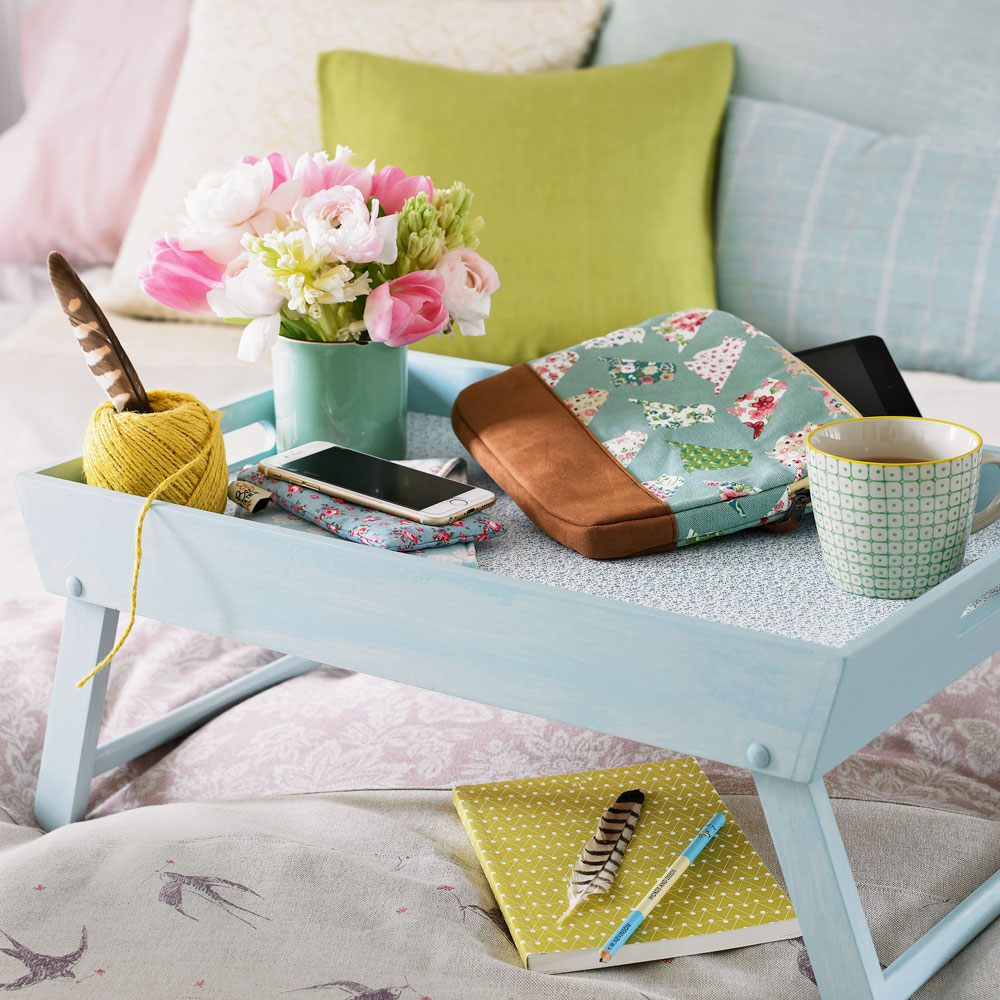
Lying in bed for hours on end trying to get to sleep is a vicious cycle. It's much better to just go to bed when you start feeling sleepy. Quality over quantity.
24. Find ways to address anxiety and worry
Health is one of our biggest worries. If you lie awake mulling over concerns about your health, or the health of a loved one, you could try meditation or a mindfulness technique to help settle your mind and improve your sleep as a result.
If you're planning to use a meditation or tapping technique to settle you, Digital Editor Amy recommends Moby's Long Ambient playlists, available on Spotify. Dr Ranj also suggests trying apps like Calm and Headspace to help you relax.
Mindfulness and anxiety reduction techniques won't necessarily make you sleep instantly, but they will help you avoid stress, and therefore prevent sleep problems in the future.
25. Don’t put up with poor sleep
Basic techniques can often improve your sleep. If tips like these don’t work, speak to your GP. It may be that you have an underlying health issue. If you have insomnia for more than a couple of weeks, or often feel so sleepy you could drop off during the day, it’s worth speaking to the doctor as sleep disorders can increase our risk of developing depression, heart disease or stroke.
26. Don’t let a health issue stop you sleeping
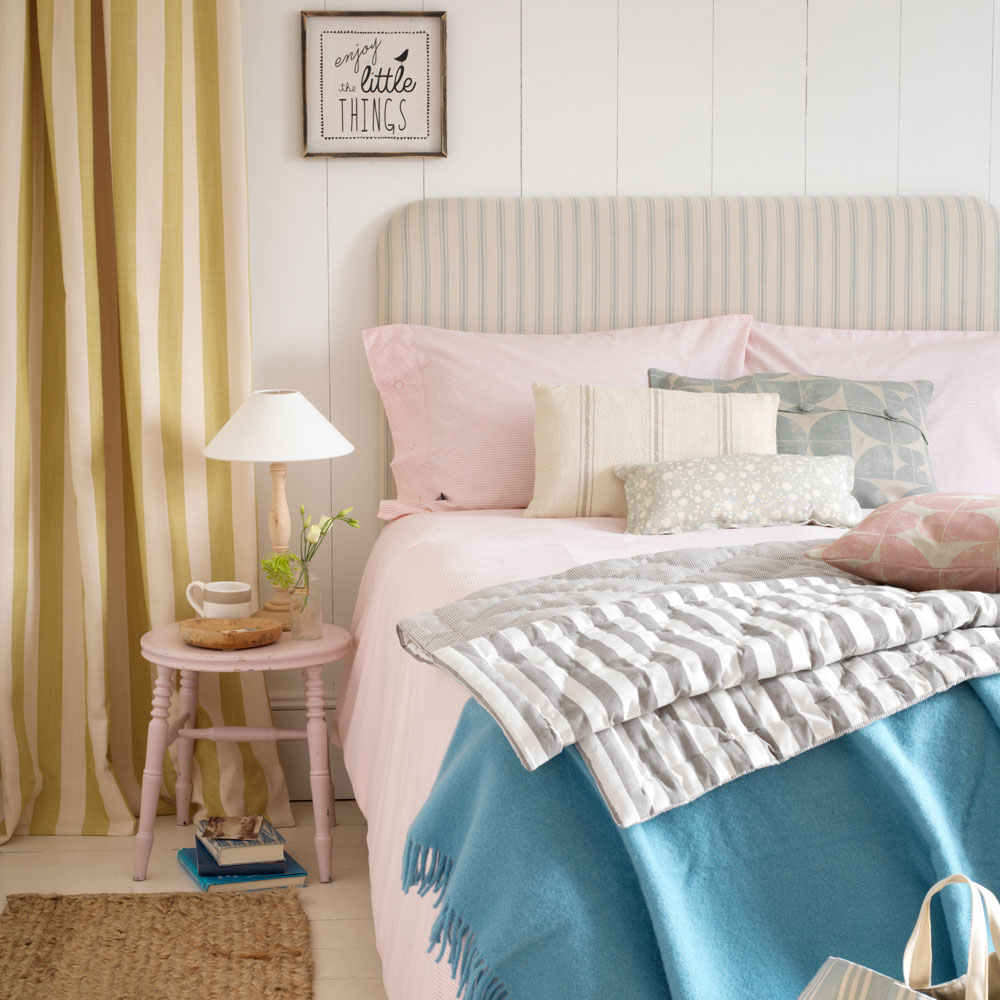
Do what you can to treat colds and flu at home and make sure that you speak to your doctor if an ongoing health problem or treatment affects your sleep.
27. Wear cotton to bed
Cotton is a great material for bedtime as not only is it lightweight and comfortable, it helps to regulate body temperature.
'We chose to use cotton in all of our D&D pyjamas as it cannot hold any electric charge preventing it from clinging and allowing your skin to breathe – so you get a better night’s sleep. It is also easy to take care of and doesn’t need dry cleaning, an added bonus,' explains Molly Goddard, co-founder at Desmond & Dempsey.
How can I sleep better at night naturally?
Leaning into natural ways to improve your sleep is a wise choice. Not only are many of these methods completely free, but they're pretty much guaranteed to be effective. One of the best things you can do to improve your sleep naturally is to lower your caffeine consumption during the day.
'Avoiding caffeine, especially in the afternoon and evening, is a great way to help yourself get better rest,' says Sleep Scientist Theresa. 'Caffeine binds to and blocks receptors that help to induce our sleepiness. Instead, a comforting, warm cup of tea can help soothe you to sleep and also contains ingredients that help you sleep.'
Aim to absorb as much daylight as possible as well, as this is the natural way to keep our bodies awake. Then when the sun has set and we've switched off all of our artificial lights, our brain will know it's time for sleep.
'If you can feasibly follow the sun by moving around the house during the day, sitting by a window or in places with more natural light, it will help keep your energy levels topped up,' says Hope from Simba. Remember, the more natural energy you have during the day, the better quality of sleep you'll reach at night.
How do I fix poor sleep?
If you're currently suffering from poor sleep, try your best to create and stick to a consistent sleep schedule. 'When it comes to sleep, consistency is key; sticking to a sleep schedule is the foundation of quality rest,' says Theresa. 'By sticking to a routine your body will “learn” when sleep is due and prepare itself accordingly by producing the hormones that aid your sleep.'
If your sleep quality is still poor after all trying all the tips on our list, it might be time to seek professional help. 'If you have insomnia, which means difficulty falling asleep or staying asleep for at least 3 nights a week, then an evidence-based treatment like cognitive behavioural therapy for insomnia or CBT-I is often helpful,' says Dr Maja from The Good Sleep Clinic. 'Ask your GP about this or access apps like Sleep Station can be helpful.'
'At the Good Sleep Clinic we offer a range of evidence-based treatments for sleep disorders like Insomnia online and face-to-face.'
We can all benefit from improving the quality of our sleep. For many of us, it may simply be a case of making small lifestyle or attitude adjustments to help us sleep better, but others may benefit from professional advice.
Jennifer is the Deputy Editor (Digital) for Homes & Gardens online. Prior to her current position, she completed various short courses a KLC Design School, and wrote across sister brands Ideal Home, LivingEtc, 25 Beautiful Homes, Country Homes & Interiors, and Style at Home.
- Katie SimsContributor